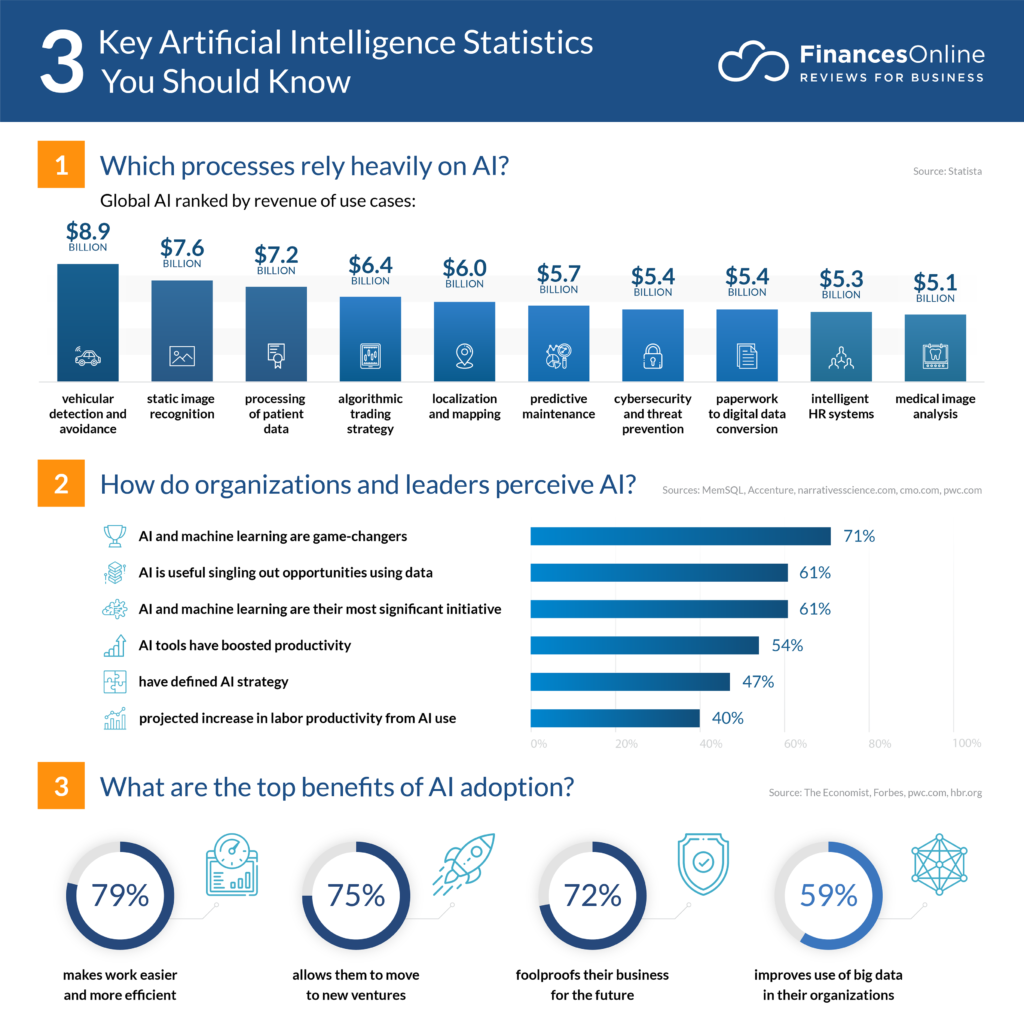The integration of Artificial Intelligence (AI) into business operations marks a pivotal shift in how companies strategize for growth, efficiency, and competitiveness. This evolution is not just about adopting modern technologies; it represents a deeper transformative power of AI in the corporate landscape, where they drive innovation and redefine industry standards. In this article, we delve into the transformative power of AI, exploring its applications in various sectors, including education, and how AI automation is revolutionizing business processes.

Understanding AI and Machine Learning
Artificial Intelligence (AI) and Machine Learning (ML) stand at the forefront of technological innovation, offering unprecedented opportunities for business transformation. AI, in its essence, simulates human intelligence processes by machines, especially computer systems. AI development services include learning (the acquisition of information and rules for using the information), reasoning (using rules to reach approximate or definite conclusions), and self-correction. Machine Learning, a crucial subset of AI, focuses on the development of computer programs that can access data and use it to learn for themselves.
The distinction between AI and ML is foundational yet subtle. AI represents a broader concept where machines are enabled to carry out tasks in a way that we would consider “smart.” Machine Learning is a current application of AI based on the idea that we should be able to give machines access to data and let them learn for themselves.
Pioneering AI Research and Applications
The research and application of AI and ML are not limited to one field but span across various domains from healthcare to finance, offering solutions that were unimaginable a few decades ago. In healthcare, AI algorithms assist in diagnosing diseases with accuracy compared to that of seasoned physicians. In the realm of finance, AI systems analyze market trends to make predictions and guide investment decisions.
The potential of AI and ML is not just in mimicking human intelligence but in surpassing human capabilities in speed, accuracy, and efficiency. As these technologies continue to evolve, their impact is expanding, opening new frontiers in science, medicine, and business.
The Transformative Power of AI
The transformative power of AI reshapes industries, redefines productivity benchmarks, and creates new paradigms for business innovation. This transformation is rooted in AI’s capability to analyze vast datasets, uncover patterns, and predict outcomes with remarkable accuracy.
Enhancing Productivity
AI-driven automation tools streamline operations, from customer service bots handling inquiries to predictive maintenance systems foreseeing equipment failures. These applications significantly reduce the human workload, freeing up time for strategic tasks.
Driving Innovation
AI’s ability to process and analyze data at an unprecedented scale fuels innovation, leading to the development of new products and services. For instance, AI algorithms are instrumental in developing more efficient energy solutions, improving renewable energy grid distribution.
Customizing User Experiences
AI’s data analysis capabilities enable businesses to offer highly personalized experiences to customers, from tailored recommendations on e-commerce platforms to personalized content on streaming services.
Deep Dive into AI and ML Technologies
Exploring the intricacies of Artificial Intelligence (AI) and Machine Learning (ML) reveals a technological landscape rich with potential for innovation and transformation. AI is not just about programming machines to perform tasks; it’s about embedding machines with the ability to learn, adapt, and improve over time. Machine Learning, a critical component of AI, enables this by using algorithms to parse data, learn from it, and make determinations or predictions about something in the world.
The Transformative Power of AI: Industry-Specific Impact
The transformative power of AI is evident across numerous industries, from healthcare’s enhanced diagnostic tools to finance’s algorithmic trading and risk management systems. Each sector experiences unique benefits from AI integration, showcasing the versatility and adaptability of AI technologies.
Also Read:
Healthcare
AI is revolutionizing healthcare by improving diagnostic accuracy, personalizing treatment plans, and optimizing operational efficiency in hospitals. AI-driven tools can analyze medical images with greater accuracy than human radiologists, leading to earlier and more precise diagnoses.
Finance
In finance, AI algorithms are used to detect fraudulent activities, manage risk, and provide personalized investment advice. These technologies enable financial institutions to offer enhanced security and tailored services, improving customer satisfaction and loyalty.
Retail
The retail sector benefits from AI through personalized shopping experiences, inventory management, and demand forecasting. AI technologies analyze customer data to offer personalized recommendations, optimize supply chains, and predict future trends, driving sales and reducing operational costs.
Education
The impact of AI in education extends beyond personalized learning and administrative efficiency. AI technologies are paving the way for new models of education, including lifelong learning platforms and AI-driven career counseling.
AI Automation in Business: Redefining Efficiency
AI automation is redefining what it means to be efficient in the business world. Beyond automating routine tasks, AI is enabling the automation of complex decision-making processes. AI-driven systems can analyze market trends, customer feedback, and operational data in real-time, providing businesses with the insights needed to make rapid, informed decisions.
This level of automation extends into creative domains as well, with AI algorithms designing marketing materials, writing content, and even generating new product ideas. This frees human creativity to focus on strategy and innovation, leveraging AI as a tool for enhancement rather than replacement.
Machine Learning Consulting: Bridging the Gap
Machine learning consulting bridges the gap between the technical world of AI and the strategic objectives of businesses. These services provide not just technical expertise but strategic guidance, helping companies navigate the complexities of AI implementation. Consultants work closely with businesses to identify areas where AI can add the most value, develop customized solutions, and ensure the seamless integration of these technologies into existing systems and workflows. The goal is to enable businesses to not only adopt AI but to adapt their operations, culture, and strategy around the insights and efficiencies AI offers.
The Ethical Frontier: Navigating AI with Responsibility
As businesses and industries embrace AI, the ethical implications of these technologies come to the fore. Navigating the ethical frontier of AI involves addressing concerns related to privacy, security, fairness, and accountability. Developing AI with ethical considerations in mind is crucial for ensuring these technologies benefit society. Guidelines and frameworks for ethical AI are emerging, guided by principles of transparency, fairness, and respect for privacy. These efforts aim to ensure that AI technologies are used responsibly, fostering trust between users, businesses, and technology providers.
AI and the Global Economy: A Catalyst for Change
AI’s impact on the global economy is profound, acting as a catalyst for change across all sectors. By driving productivity, innovation, and efficiency, AI is not only transforming businesses but also shaping economic policies and labor markets. Governments and international organizations are recognizing the importance of AI in driving economic growth and competitiveness, leading to increased investment in AI research and development.
The integration of AI into the economy also raises important questions about the future of work. While AI automates certain tasks, it also creates new jobs and industries, highlighting the need for policies that support workforce transition and skill development.
Conclusion: Embracing the AI & ML Revolution
The journey into the world of AI and ML is one of constant discovery, innovation, and transformation. As these technologies continue to evolve, their potential to reshape industries, economies, and societies grows. Embracing the AI revolution requires a commitment to ongoing learning, ethical consideration, and strategic innovation. Businesses and individuals alike stand at the threshold of a new era, where AI offers not just challenges but unparalleled opportunities for growth, efficiency, and creativity.
In the end, the future of AI in business and society will be shaped by our ability to harness its potential responsibly and creatively. The journey ahead is as much about technological innovation as it is about envisioning a future where AI and human intelligence collaborate to solve some of the world’s most pressing challenges. By navigating the AI landscape with foresight and responsibility, we can unlock a future where technology amplifies human potential, driving progress and prosperity for all.
By staying informed and engaging with AI technologies responsibly, businesses and individuals can contribute to a future where AI not only drives economic growth but also enhances the well-being of society.






















Leave a comment!